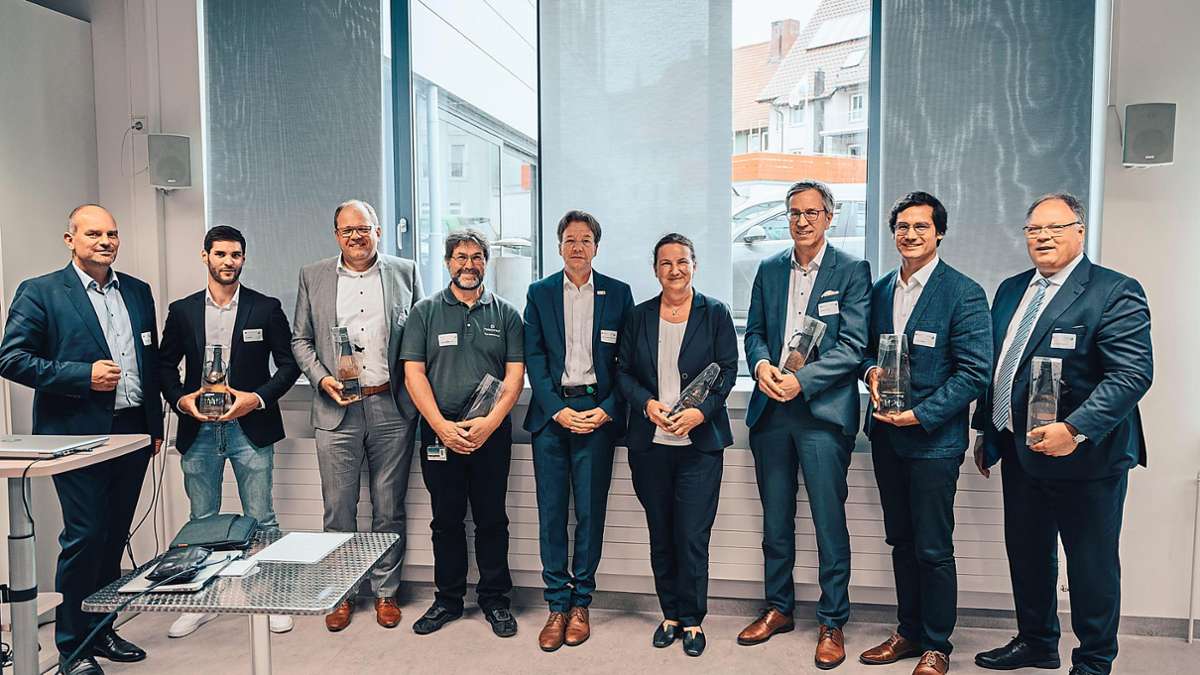Hydrogen power generation is the “technology” of the future – everyone agreed on this at the opening ceremony of the new test facility at the University of Furtwangen (HFU), which from now on will produce electricity at the Tuttlingen Innovation and Research Center (IFC).
Schwarzwald-Baar District – Frank Alminder, Professor at HFU and President of the H2 Association Regio Schwarzwald-Baar-Heuberg, has overseen the creation of the system in recent months in collaboration with the companies Ekpo Fuel Cell Technologies, Eto Magnetic, Marquardt and a renowned center for solar energy and hydrogen research in Baden-Württemberg. (ZSW).
Searching for the future
In the future, the transducer, which converts hydrogen into electricity, heat and water, will be examined in the lab: Allmendinger will look for peripheral parts around the actual fuel cell that can be improved, swapped, and replaced with more cost-effective and adaptive solutions.
The project was funded by the Ministry of Economy, Labor and Housing in Baden-Württemberg with around 300,000 euros. The companies and institutions involved have invested other significant funds in the project. MoSy, as the “Modular Fuel Cell System Test Bench” is called, was commissioned during Hydrogen Week; The project was started by the association H2 Regio SBH, and the facility is operated by HFU in cooperation with the association.
“The special thing about this project is the close collaboration and trust between all involved and the partner companies,” said Frank Alminder, delighted with the diverse support. As Bureau Chief of the H2-Regio Association, Christian Kleiber moderated an afternoon that inspired several keynote speeches on the topic of hydrogen as a future technology.
‘Exciting times to come’
As a keynote speaker, Markus Holzel of the Center for Solar and Hydrogen Research in Baden-Württemberg (ZSW) presented the current state of the research. “Exciting times lie ahead, because development must spread to all areas,” Holzel declared.
ZSW has been researching fuel cells for 30 years. However, Hölzle explained that the new testing facility at HFU is not seen as a competition, but rather as a welcome young talent, given the huge need for professionals in the field. “Germany will probably not be able to supply itself with electricity and green energy independently,” Holzel said, noting hydrogen’s big advantage: its uncomplicated ease of transportation. Holzel urgently advised southern Germany not to allow themselves to be left behind, and not to think about too little, even if green electricity from hydrogen is currently being produced in the north – politics is also required here.
Politics makes itself strong
Bundestag member Maria Lena Weiss, who is also a member of the German Bundestag Climate Committee, immediately pledged her support at the event. At the state level, Martina Braun, a member of the state parliament, has been a committed advocate for hydrogen research in Baden-Württemberg. At the event, Chancellor Andrea Linke presented HFU’s Sustainability Strategy, which covers the four areas of business education, research, transportation and operation. “As one of the most powerful research universities in the state, we at the University of Furtwangen are doing everything we can to promote the topic of future hydrogen,” Linke said when the cooperation agreement was signed.

“Certified tv guru. Reader. Professional writer. Avid introvert. Extreme pop culture buff.”







More Stories
Samsung Quantum Dot TV: Art meets technology
Pitch: €56m for energy startup Reverion
Plastoplan: Plastics for Energy Transition